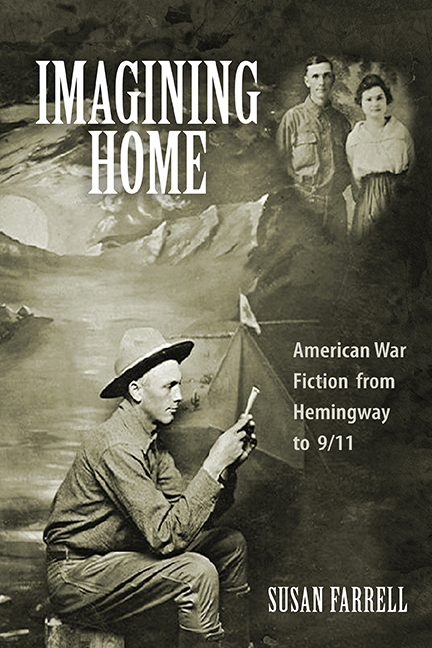Book contents
- Frontmatter
- Contents
- Acknowledgments
- Introduction
- 1 “Isn't It Pretty to Think So?”: Ernest Hemingway's Impossible Homes
- 2 A “Nation of Two”: Constructing Worlds through Narrative in the Work of Kurt Vonnegut
- 3 “It Wasn't a War Story. It Was a Love Story”: Tim O'Brien and the Ethics of Home
- 4 “A Hole in the Middle of Me”: Shattered Homes in Post-9/11 Literature
- Afterword
- Notes
- Works Cited
- Index
3 - “It Wasn't a War Story. It Was a Love Story”: Tim O'Brien and the Ethics of Home
Published online by Cambridge University Press: 25 August 2018
- Frontmatter
- Contents
- Acknowledgments
- Introduction
- 1 “Isn't It Pretty to Think So?”: Ernest Hemingway's Impossible Homes
- 2 A “Nation of Two”: Constructing Worlds through Narrative in the Work of Kurt Vonnegut
- 3 “It Wasn't a War Story. It Was a Love Story”: Tim O'Brien and the Ethics of Home
- 4 “A Hole in the Middle of Me”: Shattered Homes in Post-9/11 Literature
- Afterword
- Notes
- Works Cited
- Index
Summary
Part I: Introduction
CONSIDERED BY MANY to be America's finest chronicler of the war in Vietnam, Tim O'Brien is best known for his trio of novels that explore the war's impact on the psyches of the individual soldiers who fought it— Going after Cacciato (1978), The Things They Carried (1990), and In the Lake of the Woods (1994). These traumatized soldiers, who typically share O'Brien's own midwestern background, range from decent men who try their best to behave honorably in untenable situations—not unlike some of Vonnegut's hapless, utopian dreamers—to morally complicated, damaged, and even dangerous people who are willing to do anything for love. But while Vonnegut's tone is almost always humorously ironic (if sometimes sad and even despairing), while he depicts the darkly buffoonish nature of modern war, O'Brien's tone tends to be less cartoonish, more serious and more realistic, more emotionally wrenching. Arguing that good war stories must “make the stomach believe” (Things 78), O'Brien reaches for an emotional resonance in his work, a connection with readers in which they are able to feel, at least partly, what O'Brien's characters feel as they face moral and philosophical crises in their lives. But what is perhaps most surprising about O'Brien's work is that he achieves a sense of the real, his own compelling brand of emotional honesty, not through straightforward storytelling so much as through a postmodern exploration of the constructed nature of fiction, the relationship between story and real life. Like Vonnegut, he frequently uses metafictive and other postmodern techniques in his work, often commenting on the stories he is telling as he tells them, blending elements of fact and fiction, utilizing multiple narrators and complicated perspectives, and questioning the reliability of historical truth. Like both Hemingway and Vonnegut, then, O'Brien is interested in the process of narrative itself—how telling stories can be a way of arriving at truth, often a more meaningful and emotionally charged truth than can be achieved through factual history.
American fiction about the Vietnam War has sometimes been criticized for focusing almost exclusively on the individual experience of the everyday soldier rather than raising large questions about the history and morality of the war.
- Type
- Chapter
- Information
- Imagining HomeAmerican War Fiction from Hemingway to 9/11, pp. 104 - 143Publisher: Boydell & BrewerPrint publication year: 2017



